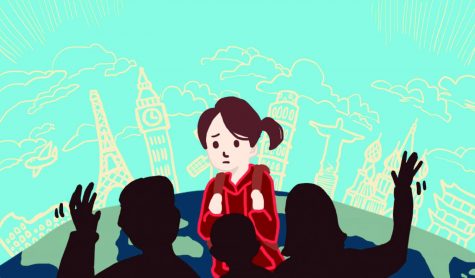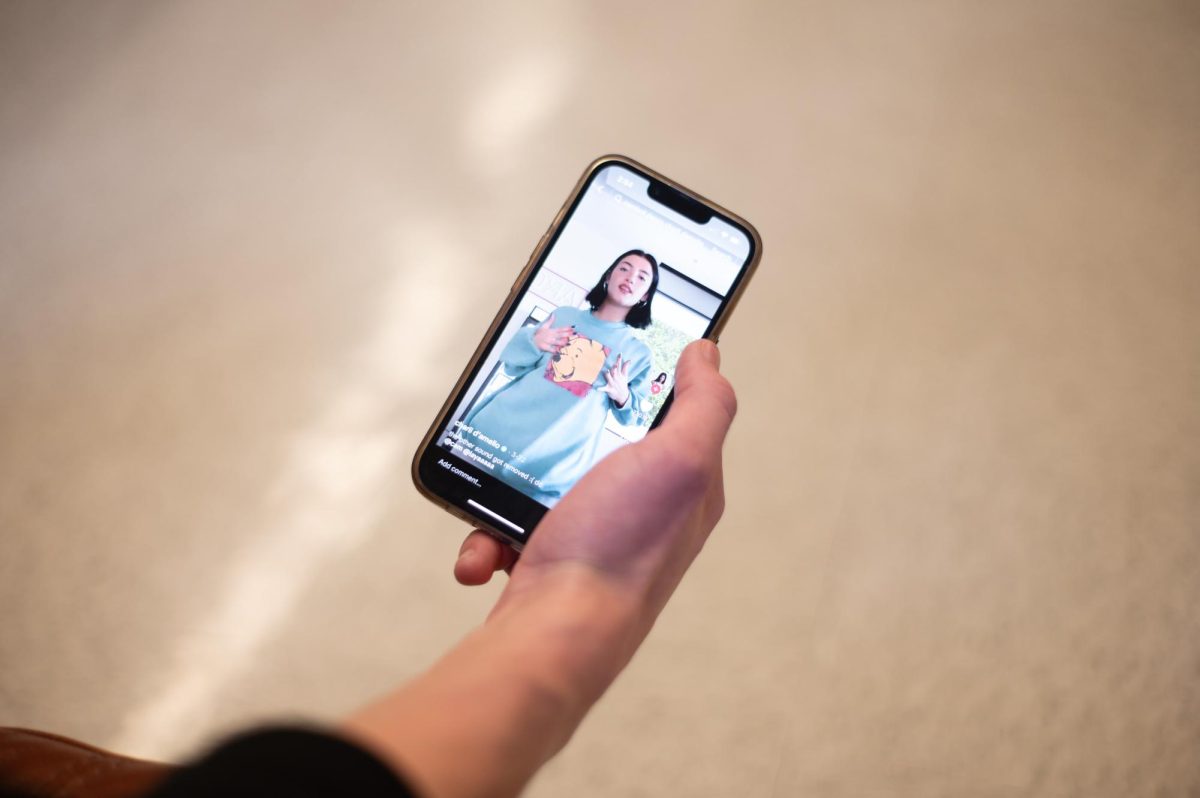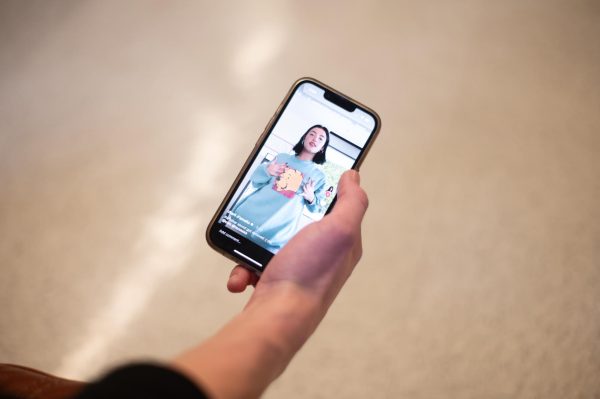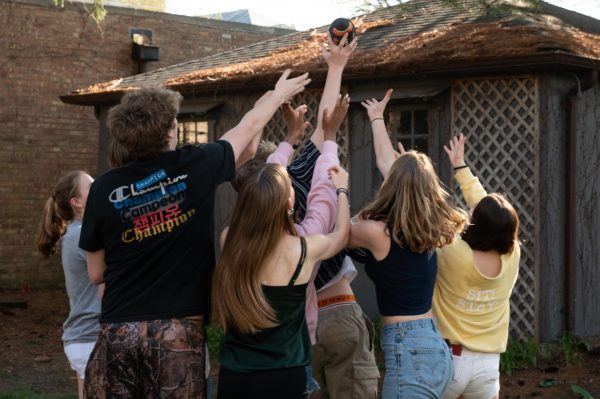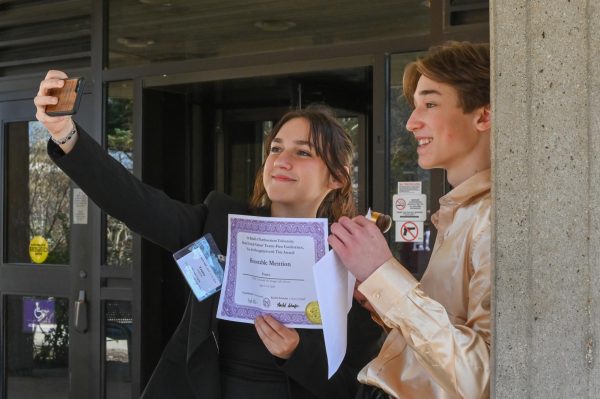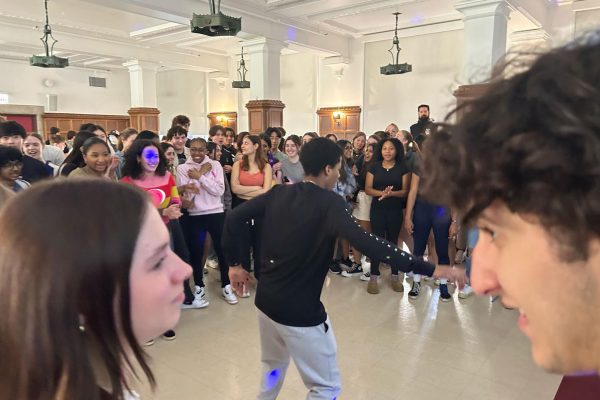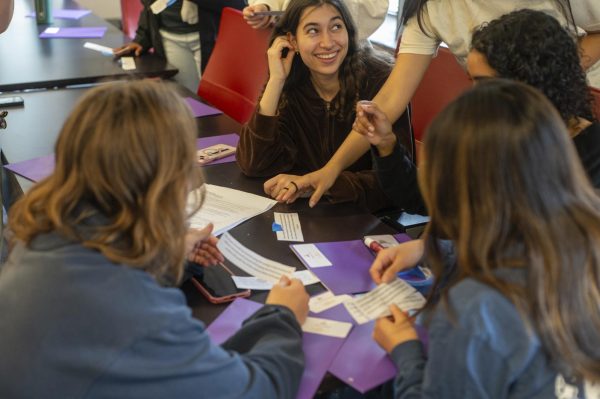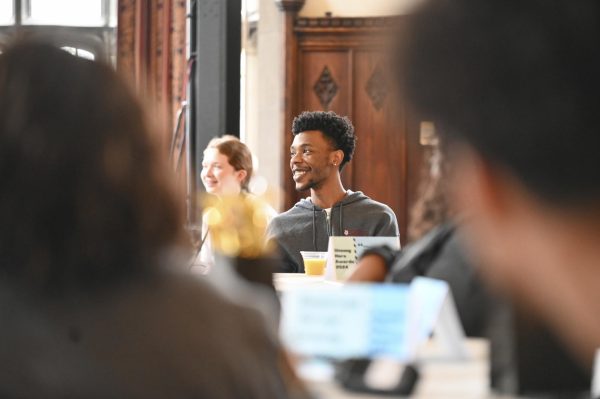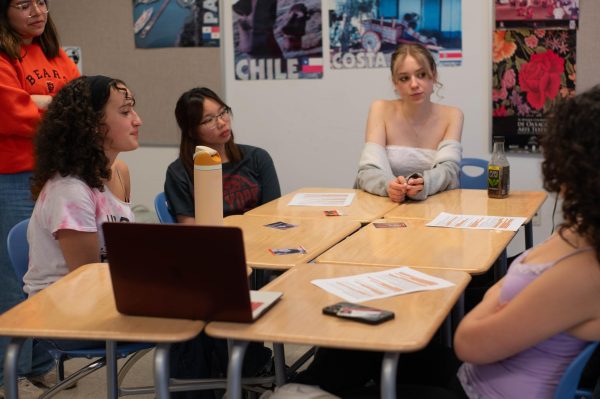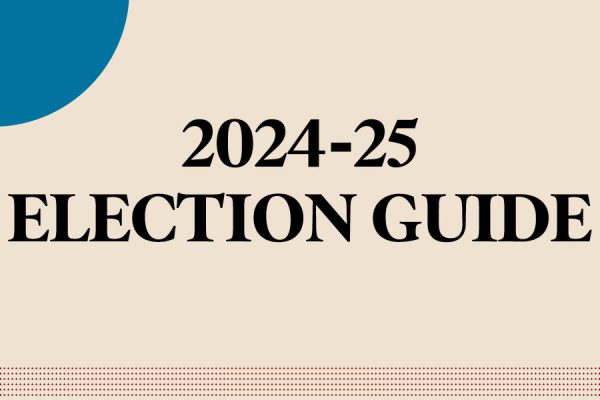Four years in a foreign land
Tuition, culture, specialized college education add to international appeal
May 29, 2018
As students think about education after U-High and begin their college search, they might look beyond United States borders and consider international universities.
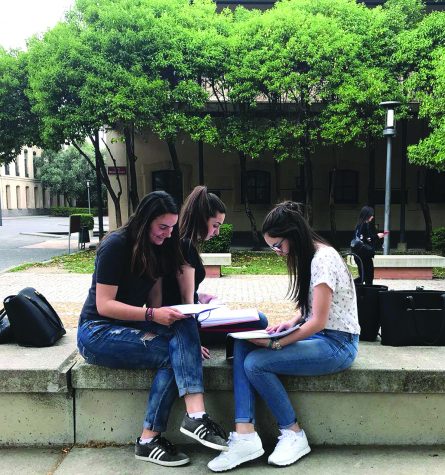
STUDYING IN SPAIN. 2017 U-High alumna Zoe Rebollo Baum studies with friends María López Aragón and Ines Consuegra Castellanos on their campus at the Universidad de Carlos III in Madrid. Zoe is a freshman studying business.
According to world language teacher Suzanne Baum, European institutions are excellent options in which students specialize earlier than in America. Her daughter Zoe, a 2017 U-High alumna, studies business in Spain at the Universidad de Carlos III in Madrid.
“Zoe is doing business, so that’s all she’s doing,” Ms. Baum said. “She has accounting, calculus and economics courses. She does have one history course and it has an economic slant. So I think it’s very specialized. Whereas, when you study in America you have usually four years of a liberal arts education.”
Because of this, Ms. Baum is working with Zoe to find novels and history texts to complement her focused education.
“Specializing too early actually gets you ahead of the game earlier, but then I think it could be a detriment to the future and graduate school,” she said. “You need to be able to read and analyze, critique, be very creative and not just memorize and regurgitate.”
Tuition at European universities is much less expensive than those of American universities, and according to Ms. Baum, the education is excellent.
“Not everyone goes to the universities in Europe, so it’s a very selective process. So being selected is quite an accomplishment in itself, and you get a very high quality education at a low cost,” she said. “So Spain, the cost is 1,200 euros a year and that’s one of the most expensive universities that’s public in Europe. So for instance, Germany, once you’re accepted, it’s free.”
A factor worth considering is the cultural difference. In Ms. Warehall’s opinion, international exposure and cultural diversity in the student body are benefits of studying internationally. However, the language barrier can be difficult according to Ms. Baum. who found that her daughter’s dual citizenship and familiarity with the Spanish language eased her adjustment.
“Her program is in English but all of the TAs and extra help classes are in Spanish, so if she weren’t bilingual she really couldn’t have done this program,” she said.
According to Ms. Warehall, a student should think about what they are looking for in a college before taking location into account. Then, if the student fits an international school, they should consider it.
“If there is a student with whom I’m talking about her values and I’m thinking, ‘Wow this sounds just like the University of Edinburgh,’ then absolutely I would suggest it,” she said. “But usually one of the first questions I’ll ask is, ‘Are you open to international schools?’”
While few Lab students apply to European universities, many apply to Canadian universities each year.
Senior Jacob Shkrob will attend McGill University in Montréal in the fall. According to Jacob, adjusting to a new place will be an intimidating process.
“The whole process of becoming an international student is really daunting,” he said. “There are forms you need to fill out, permits you need to buy, and currency issues that have to be sorted out.”
Jacob chose McGill because, while it offers a fresh start in a new country, it is also closer to his home than most other international universities.
He said, “I would say international colleges give you the cleanest slate you could ask for: new country, new customs, new rules, and even new time zones.”



